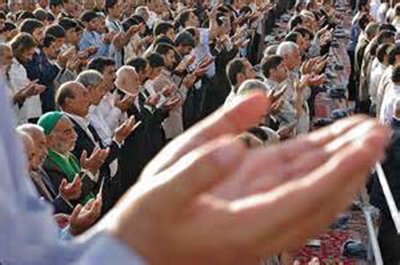
RNA – Muslims celebrated Eid al-Adha, known as the Feast of Sacrifice and is one of the two most important celebrations in the Muslim calendar, the other being Eid al-Fitr, the Eid of the breaking of the fast after Ramadhan.
After witnessing Prophet Abraham devotion and willingness to sacrifice his son at the command of God, God gave him a lamb to sacrifice in the stead of his son, Ishmael. Muslims traditionally celebrate Prophet Abraham’s act of submission to God with the sacrifice of animals like sheep, rams, goats and cattle as God provided Prophet Abraham with a ram to sacrifice instead of his dear son after he successfully passed the divine test.
Unlike Eid al-Fitr, the festivities for Eid al-Adha last for one day and Muslims usually start off the celebrations by reciting the Takbir at dawn before conducting a special Eid prayer, which is usually performed in congregation at mosque’s. This prayer is followed by a sermon. People go to mosques in either new or their best clothes to thank God for the blessings they have received, and exchange the greeting “Eid Mubarak,” meaning “blessed Eid.” They also visit their relatives or invite them over for a meal.
Eid al-Adha also marks the end of the Hajj pilgrimage, the five-day religious journey that takes Muslims to the Grand Mosque in Makkah. Over two million Muslims made the pilgrimage this year and requires the completion of a set of rituals which are performed in the memory of Prophet Abraham, culminating in reaching the Ka’bah inside the Grand Mosque. Seeing the Ka’bah in person is a spiritual and emotional moment for most Muslims, who often save their money for many years or an entire lifetime before making the life-changing pilgrimage, which every able-bodied Muslim must perform, if he or she is able to.
In the Islamic Republic of Iran, people from different walks of life went to mosques to participate in the special Eid al-Adha prayers. A mass prayer was also held in the Iranian capital, Tehran, which was attended by ordinary people and high-ranking government officials.
111/112